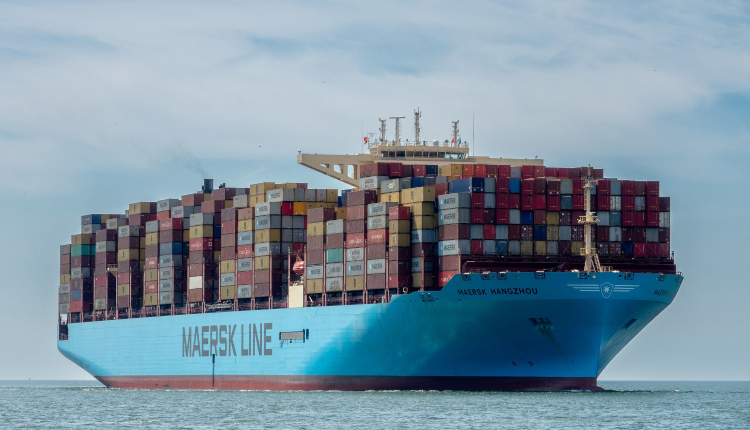Maersk expects slower global demand for container shipping in the upcoming quarters due to market risks, despite increasing its capital expenditure, the company stated on Wednesday.
The Danish shipping giant is planning to order 50 to 60 new container vessels for delivery from 2026 to 2030 as part of its fleet renewal, aimed at replacing older vessels to maintain its transport capacity. Maersk’s fleet, including many chartered vessels, comprises over 700 container ships.
The fleet renewal programme will increase Maersk’s capital expenditure for 2024-2025 by $1 billion, raising it to $10 billion-$11 billion from the previous $9 billion-$10 billion guidance. This announcement caused a drop in the company’s shares, The shipping company’s share price fell 2.4 per cent by 0823 GMT, with a year-to-date decline of 11.4 per cent.
Over 60 per cent of the new vessels will be chartered from other owners, with the remainder owned by Maersk. Global container demand grew 5-7 per cent in the second quarter, driven by a 10 per cent increase in Chinese exports.
“Global container demand growth is expected to remain positive in coming quarters, but likely at a slower pace,” Maersk stated in its earnings report.
On the other hand, Maersk confirmed preliminary second-quarter earnings released last week, raising its outlook for the third time since May, citing higher freight rates due to the Red Sea crisis and solid container shipping demand. However, it warned of uncertain prospects for the fourth quarter.
“A healthy, albeit cooling labour market, and wage gains are expected to continue to support US consumers. Declining consumer confidence and savings, however, are clouds at the horizon,” Maersk said. For the full year, it expects global container market volumes to increase by 4-6 per cent.
Shipping disruptions in the Red Sea are expected to last until at least the end of the year. The maritime disruptions have led to US and British retaliatory strikes and disrupted global trade, benefiting shipping companies due to longer sailing times and increased freight rates as ships are rerouted around Africa which led to increase the prices.
Attribution: Reuters


